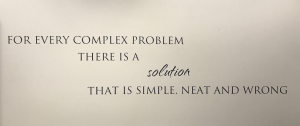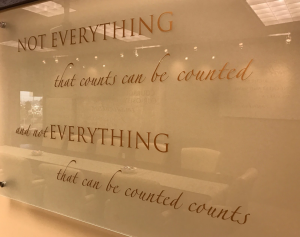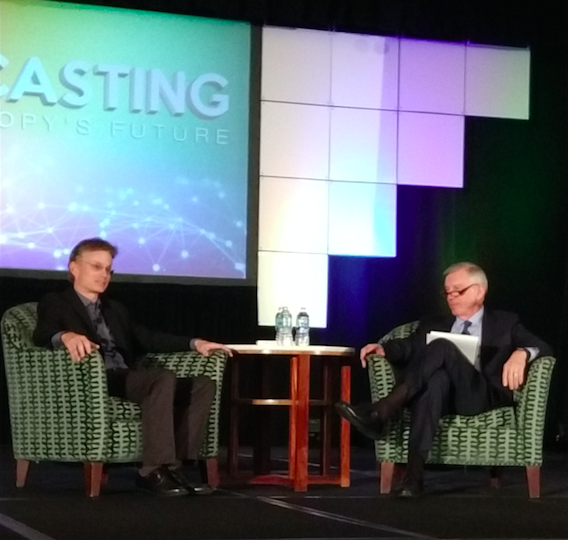Philanthropy is experiencing an evolution with the influx of new players and approaches, as Inside Philanthropy Founder and Editor David Callahan shared during the keynote for the 2017 Southeastern Council of Foundations Annual Meeting.
Following David’s talk, we caught up with Debra Jacobs, president and CEO of The Patterson Foundation, to hear her thoughts on how these emerging trends — and their interaction with more traditional approaches — relate to The Patterson Foundation’s work.
How is the shift in philanthropy David mentioned toward an innovative, entrepreneurial approach reflected in The Patterson Foundation’s work?
Rather than more traditional grantmaking, The Patterson Foundation quests for opportunities to strengthen community by connecting individuals, business, nonprofits, government and media on shared aspirations. It’s not about arriving with the answer — and your assumptions about a particular endeavor will change once they play out. It’s about listening and demonstrating humility and openness — and serving as an example of these virtues for others.

One of the strengths of legacy philanthropy he noted is experience and the perspective that comes with trying different approaches over a long period of time. What are some examples of learnings The Patterson Foundation has gained along the way and their influence on its overall approach?
We have to find common language — common ground — and not thrust solutions forward that may not work. It’s important to be open to learning new ways of doing things, but it’s equally important to share what you know with others to strengthen each collaborator engaged in the mission.
David mentioned the emphasis within emerging philanthropy on moving the needle quickly in a tangible way. How has The Patterson Foundation balanced the importance of driving near-term measurable results with sustainable, long-term impact?
We’ve seen time and again that no needle moves quickly — but they do move through tenacity. The focus should be on creating a trend in the data illustrating the challenge you’re focused on — not a lone data point. There is immense value beyond the dollars, such as relationship building and providing time, space, and technical assistance. All must be balanced with patience and making time to learn and adapt to the changes that come with any complex issue.

New philanthropy has exhibited a willingness to approach old challenges from new angles. How is The Patterson Foundation doing that through its initiatives?
Fresh thinking is always helpful. There’s true value in learning from the past to build the future. With initiatives like the Suncoast Campaign for Grade-Level Reading and Age-Friendly Sarasota, The Patterson Foundation has embraced a learning loop. Through both, we have an opportunity to learn from the best and brightest communities in our nation and around the world — and apply their learnings locally in an entrepreneurial way. Rather than stopping there, The Patterson Foundation leverages these networks further by sharing our own home-grown learnings with other communities far and wide working toward the same aspirations. Being intentional about learning and sharing is an investment in the greater good.
What can emerging philanthropy and legacy philanthropy learn from and share with each other to strengthen their respective missions?
Established philanthropy has the opportunity to become less risk averse — there’s a tendency to forget that wealth and success comes questing for upside results, while managing risks. Even when you do fail, there’s a valuable opportunity to learn and evolve. The Patterson Foundation embraces this approach and has evolved considerably from the learnings along the way. On the other hand, emerging philanthropy can practice patience in its pursuits. Even those coming from a successful business background should be open to learning from and adapting to the complexities of the work.



